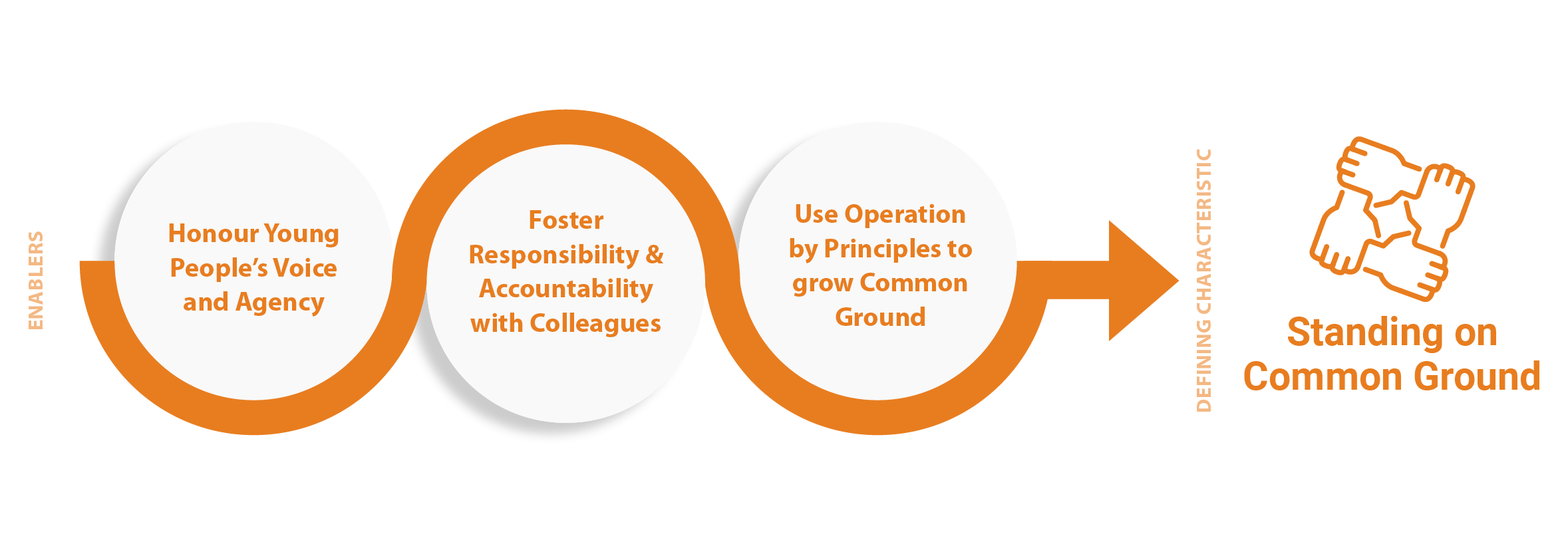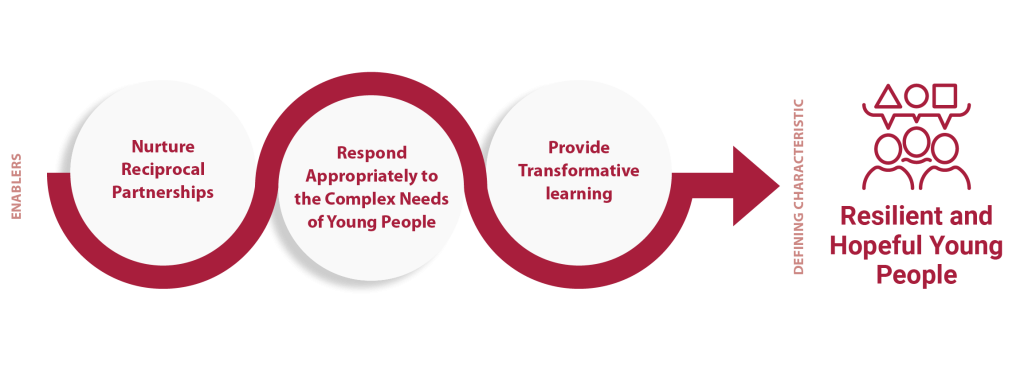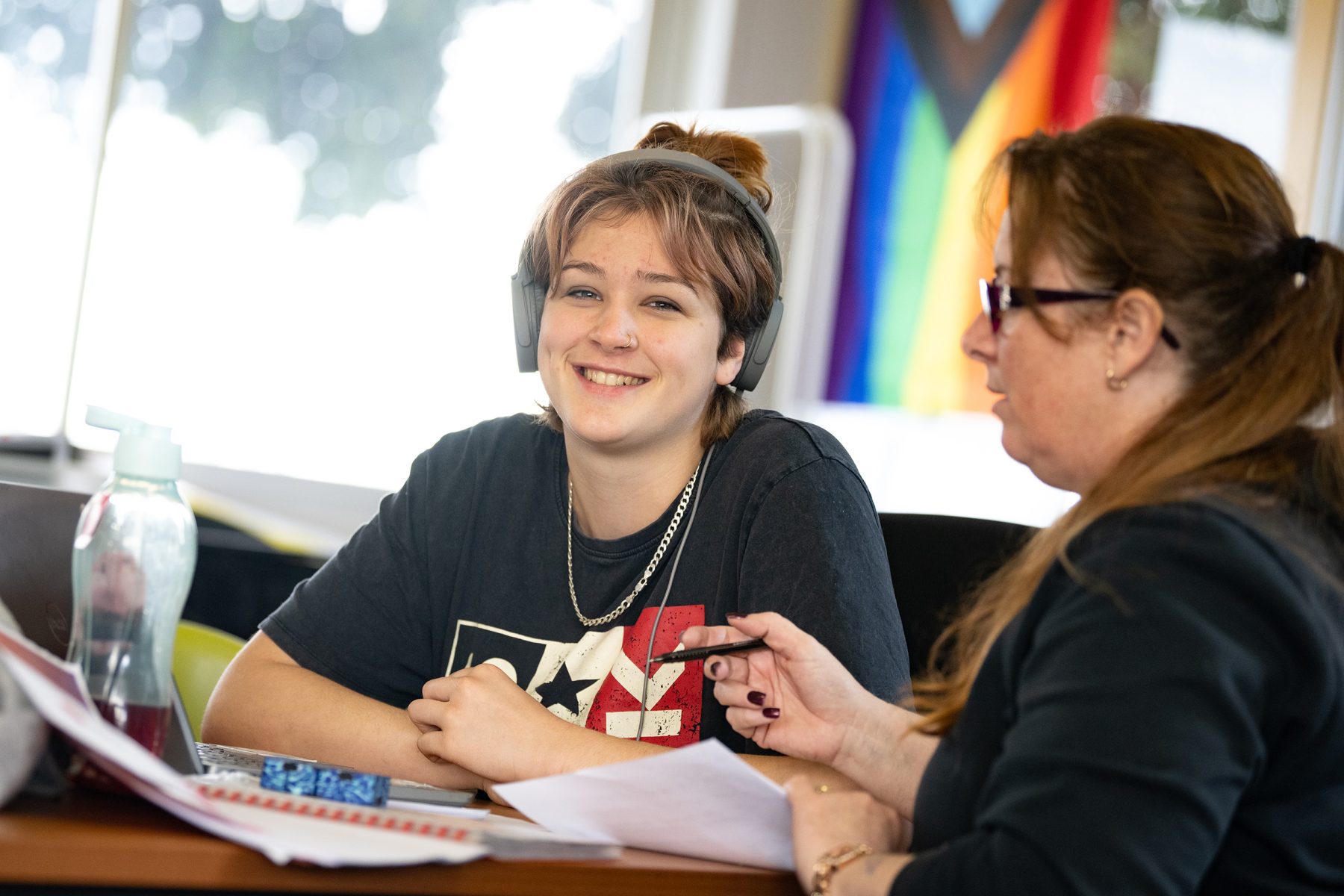Flexi Practice Framework
Edmund Rice Education Australia Flexible Schools Ltd are excited to announce the release of the Flexi Practice Framework.
There are three Defining Characteristics of the Flexi Practice Framework; Standing on Common Ground, An Inclusive Community and Resilient and Hopeful Young People. These characteristics have “Enablers” that make it possible for the Defining Characteristic to be a consistent practice of EREA Flexible Schools.
We look forward to this document guiding staff and staff teams as they develop their Flexi Practice.



Uphold the rights of young people in everything that we do (as defined by the UN Rights of the Child).
This supports young people to be “agents of change” throughout their learning journey and in their communities.
“Open your mind. Open your heart. Open your eyes and open your ears.
Learn to close your mouth. Be patient and be comfortable with silence!”
This supports young people to be “agents of change” throughout their learning journey and in their communities.
“Open your mind. Open your heart. Open your eyes and open your ears.
Learn to close your mouth. Be patient and be comfortable with silence!”
We are committed to subsidiarity at all levels. Where possible, the colleagues of a Flexible School (including paid consultants and volunteers), have a shared responsibility and accountability for any decisions that impact upon them.
Everyone – young people, staff and others – create Common Ground
(what they want to experience and how they want to be together)
by using the core Principles of Respect, Honesty, Participation, and Safe & Legal.
(what they want to experience and how they want to be together)
by using the core Principles of Respect, Honesty, Participation, and Safe & Legal.
Relationships are the starting point for re-engaging young people in their educational journey at the Flexible School.
Through collaborative and meaningful engagement, we are dedicated to integrating First Nations Ways of Being, Doing and Knowing, and maintaining a commitment
to Truth Telling and Reconciliation.
We aim to maintain a culture of safeguarding, where we know our role in the prevention, detection and reporting of abuse, neglect and exploitation of the young people we work with. We empower those young people by ensuring they know their rights; what they should expect of us and who to go to if something concerning is happening.
We go beyond inclusion to co-create and foster learning communities where all can belong and thrive.
We work in reciprocal partnerships with community, government and industry to extend the possibilities of our learning spaces and enhance outcomes for young people.
We support young people to experiment and grow their identity during the adolescent stage of their life where they explore “Who am I?”. All facets of their identity – physical, cognitive and psycho-social – are changing and developing as they transition from childhood to adulthood. We recognise that trauma can significantly disrupt this identity formation process, creating additional challenges for young people as they attempt to integrate traumatic experiences into their developing sense of self while navigating these already complex developmental changes.
Success in learning is drawn from evidence of the whole of a young person’s life. We provide skills based and personalised learning so that all young people develop the confidence and capabilities to create their own aspirational pathways.


